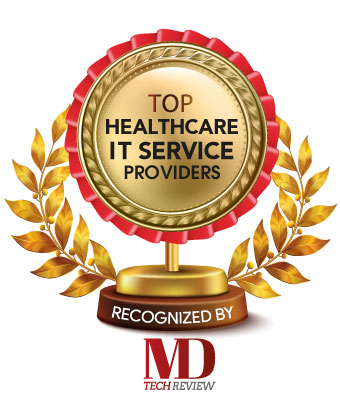Blockchain promises to improve the reliability of cloud-based health records storage space. In blockchain-enabled cloud storage, medical device data is encrypted, broken down into segments that are interlinked with the hash function, and then decentralized throughout the network.
Fremont, CA: In a threat environment where data on medical devices is the primary focus, healthcare providers need to prioritize their defense in order to deliver secure and effective treatment to their patients. Blockchain is a groundbreaking approach for IoMT security that forward-looking security leaders are currently actively investigating. Even the first preliminary implementations demonstrate that technology has the ability to increase the safety levels of a linked healthcare facility, a1qa's blockchain app testers acknowledge.
Let us look at how healthcare providers can use blockchain to secure sensitive medical device data against common security vulnerabilities and ever-evolving cybersecurity exploits.
Complete Device Visibility
Weak control over IoT endpoints and applications is probably the most persistent security problem facing corporate security leaders. Despite the proliferation of IT monitoring technology, businesses with extensively connected infrastructures still appear to leave the connected devices out of sight. As a result, unrecognized devices become hackers' gaps in the facility network and, ultimately, patient data.
 In the meantime, a distributed blockchain-based database (DB) will allow full visibility of medical IoT properties. As the records in the distributed ledger are timeless, medical equipment is put straight into the network and can never fall off the radar due to incompetence or oversight.
In the meantime, a distributed blockchain-based database (DB) will allow full visibility of medical IoT properties. As the records in the distributed ledger are timeless, medical equipment is put straight into the network and can never fall off the radar due to incompetence or oversight.
In addition, all system configurations or physical relocations, including those carried out with malicious intent, would be instantly recorded in the history of modifications, making it difficult for hackers to disrupt undetected protection if they have access to the network. In addition to providing healthcare facilities with full control over their distributed network of devices, blockchain-enabled monitoring aims to reduce IoMT maintenance costs while increasing network capacity.
An Impenetrable Data Storage
Today, many healthcare providers are leaving their server-based medical data storage areas in favor of cloud-based solutions—and rightly so. For several factors, the cloud is a safer option: it has almost infinite storage space, does not require careful maintenance, and is consistent with universal and regional data security requirements. However, according to the Netwrix Cloud Data Protection Study, 35 percent of healthcare organizations that store confidential information in the cloud experienced security incidents in 2019, which is still a reasonably high likelihood of a breach.
Blockchain promises to improve the reliability of cloud-based health records storage space. In blockchain-enabled cloud storage, medical device data is encrypted, broken down into segments that are interlinked with the hash function, and then decentralized throughout the network.



